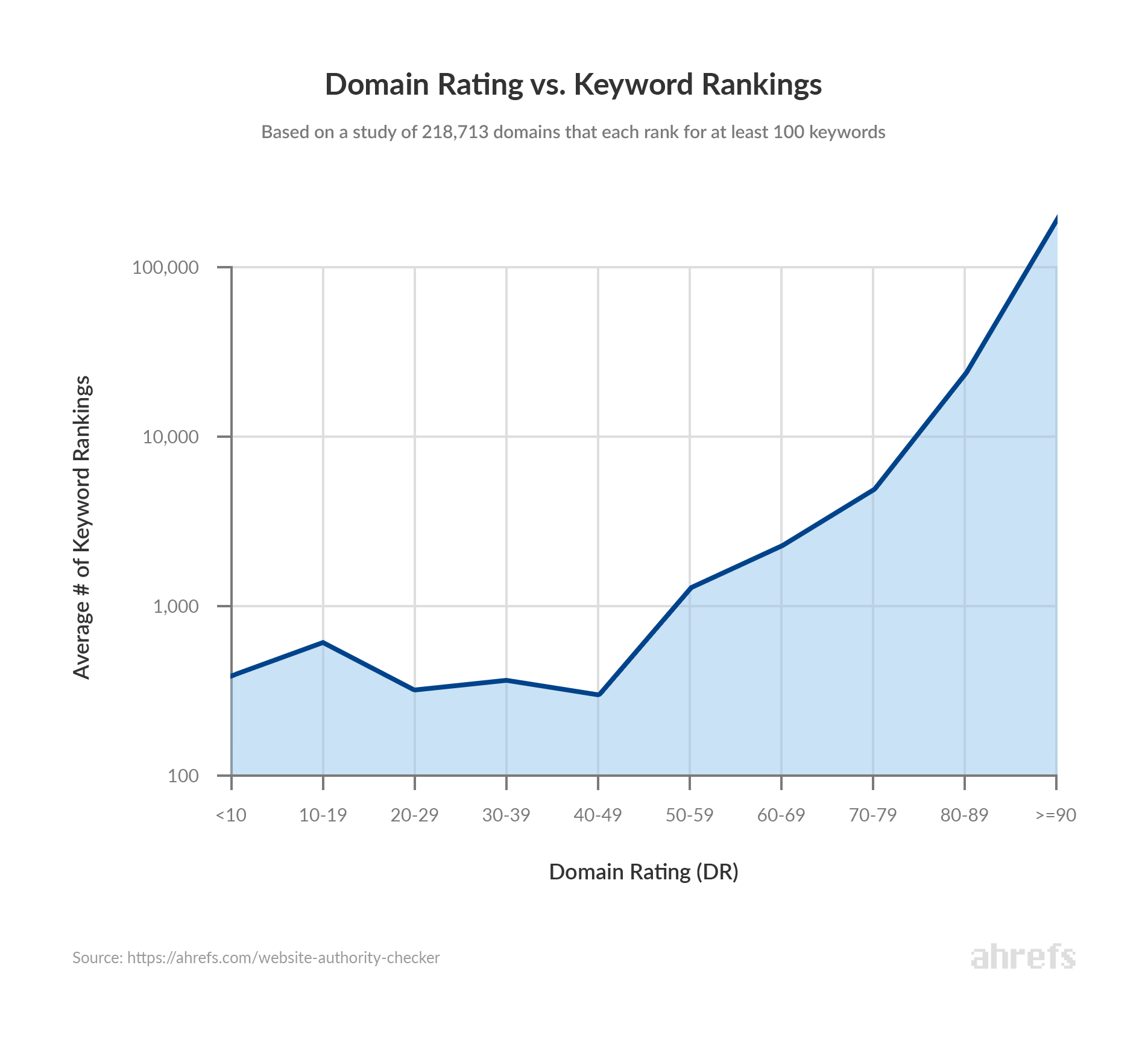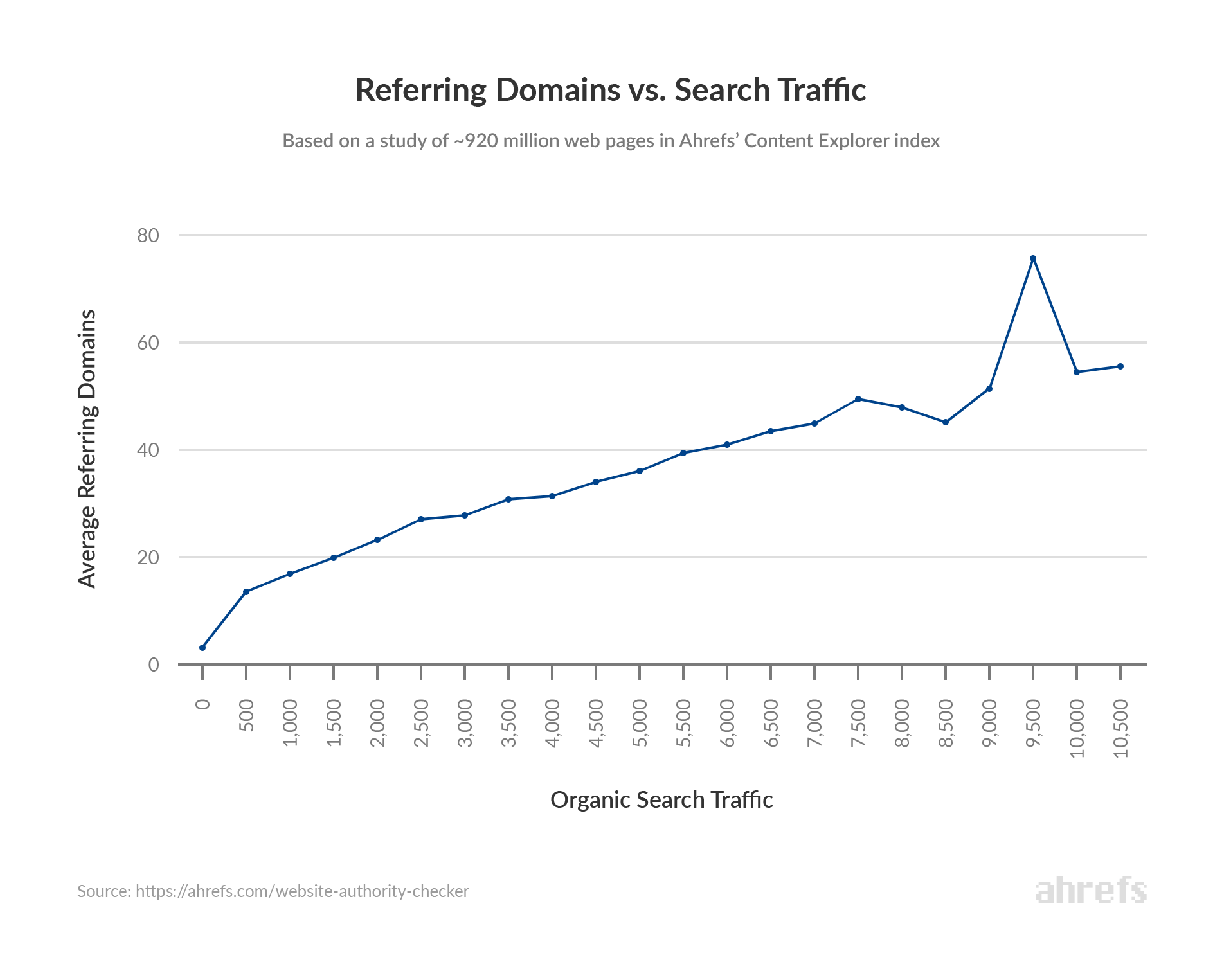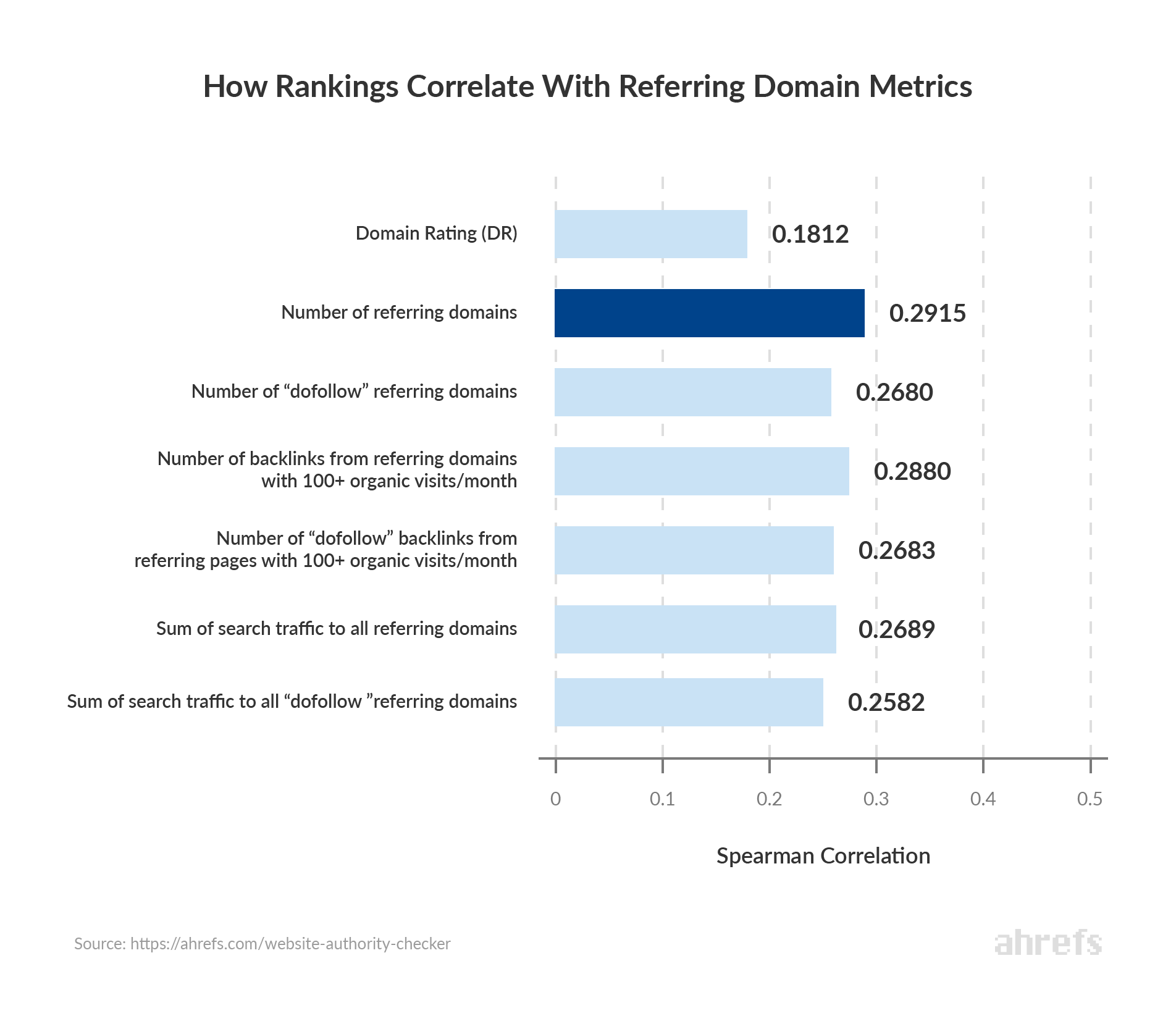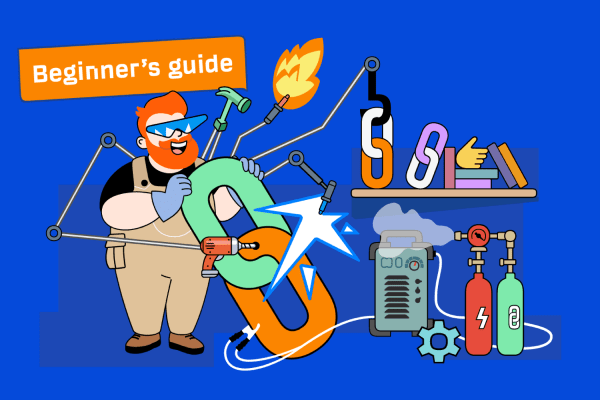Website “Authority” Checker
Verifica l'"autorità" del tuo dominio (come misurata da Ahrefs).
Che cos'è "l'autorità del sito web"?
“L'autorità del sito web” è un concetto SEO che si riferisce alla “solidità” di un determinato dominio.
Alcuni la definiscono "autorità del dominio", da non confondere con la metrica Domain Authority (DA) di Moz. Quando parliamo di autorità del dominio, parliamo di un concetto generico della SEO sinonimo di "autorità del sito web"
Noi di Ahrefs abbiamo una metrica tutta nostra per l'autorità dei siti web, chiamata Domain Rating. Funziona su una scala da zero a cento. Più alto è il Domain Rating (DR) di un sito web, più questo sarà solido e autorevole.
Lo strumento gratuito in alto nella pagina mostra l'“autorità” del tuo sito web, così come calcolata da Ahrefs (il Domain Rating).
Come calcoliamo il nostro punteggio di Domain Rating (DR)
Domain Rating (DR) esamina la quantità e la qualità dei backlink esterni verso un sito web.
Ecco come calcoliamo questa metrica in termini semplici:
Guardiamo quanti domini univoci contengono link verso il sito web obiettivo;
Guardiamo "l'autorità" di quei domini;
Considera verso quanti domini unici ciascuno di questi siti possiede un link;
Applichiamo un po' di matematica e del codice per calcolare i punteggi di DR “grezzi”;
Tracciamo questi punteggi su una scala a 100 punti
Il Domain Rating non tiene conto di altre variabili come il link spam, il traffico, l'età del dominio, ecc.
Scopri di più sul Domain Rating qui.
Perché l'"autorità" del tuo dominio è importante
I rappresentanti di Google negano costantemente l'uso dell'"autorità del dominio" come fattore di posizionamento ma, secondo John Mueller di Google, usano un punteggio a livello di sito che "collega a cose simili"
Inoltre, quando abbiamo studiato la correlazione tra il Domain Rating (DR) e il posizionamento delle parole chiave per 218.713 domini, abbiamo scoperto che tra i due esiste una buona correlazione.

Questo rende il Domain Rating (autorità) una metrica utile per valutare la capacità di un sito web di ottenere traffico organico da Google.
Disclaimer: questo è uno studio di correlazione. Non prova la causalità.
Qual è un buon punteggio di Domain Rating (autorità)?
In generale, maggiore è l'"autorità" del tuo dominio, meglio è.
Ma è importante non giudicare il Domain Rating in termini assoluti. Questo perché, per definizione, il Domain Rating è una metrica relativa. Non è possibile dire che, per essere buono, un Domain Rating deve essere di 30, 50, 60 o 70. È tutto relativo.
Ecco una regola generale:
Il tuo Domain Rating (autorità) è buono se è superiore o paragonabile a siti simili.
Come migliorare il tuo Domain Rating (il punteggio di "autorità")
Ottenere backlink da più siti unici (domini referral) è l'unico modo per migliorare il Domain Rating (l'autorità) del tuo sito web.
Ma migliorare l'"autorità" del tuo sito non dovrebbe mai essere il tuo obiettivo principale.
Dovresti invece concentrarti sull'ottenere backlink da pagine forti su siti autorevoli del tuo settore e verso le pagine che desideri posizionare su Google. Questo perché esiste una chiara correlazione tra il numero di domini referral verso una pagina e la quantità di traffico organico che questa riceve.

Inoltre, abbiamo scoperto che il numero di domini referral di una pagina è il fattore dei backlink con la più forte correlazione per quanto riguarda il posizionamento.

Come usare l'“autorità del sito web”
Ecco due casi di utilizzo interessanti:
1. Analisi comparativa rispetto ai tuoi concorrenti
Se l'"autorità" del tuo sito web è superiore a quella dei tuoi concorrenti, il tuo sito è più solido del loro in termini di "popolarità dei link".
Ad esempio, ahrefs.com ha un Domain Rating di 88. Moz.com ha un Domain Rating di 91.
Questo dipende dal fatto che ha più backlink da siti web con un profilo di link solido, il che porta a un punteggio di "autorità" (misurata da Ahrefs) più alto.
SUGGERIMENTO. Se due siti web hanno lo stesso Domain Rating, ti consigliamo di usare Ahrefs Rank (AR) per giudicare la loro solidità relativa.
Confrontare il tuo Domain Rating con altri siti web del tuo settore può dirti se i tuoi concorrenti stanno facendo meglio o peggio di te. Se stanno facendo meglio, potresti voler analizzare il loro profilo di backlink in Site Explorer di Ahrefs per opportunità di link inesplorate.
2. Per vagliare i potenziali nuovi link
Google si preoccupa di più della "solidità" della pagina di provenienza del link piuttosto che del dominio su cui si trova il link. Tuttavia, le pagine di domini con alta "autorità" tendono a essere più solide di quelle di siti con bassa "autorità".
Per questo motivo, il Domain Rating di Ahrefs è un buon indicatore per giudicare la qualità relativa dei potenziali nuovi link.
Ma non giudicare mai la qualità di un sito web esclusivamente in base alla sua "autorità".
Dovresti anche considerare quanto segue:
Hanno backlink di alta qualità?
Hanno molte pagine? (di solito, meno è meglio)
Contengono link verso molti siti web? (di nuovo, tendenzialmente, meno è meglio)
Stanno pubblicando contenuti di alta qualità?
È probabile che questo sito web sia ancora in circolazione tra sei mesi? Tra un anno? Tra cinque anni?
Riceve traffico organico? Questo sito web ha una tematica rilevante per il tuo sito web?
Guide al link building

Come aumentare l'autorità del sito web (Domain Rating)
Scopri cos'è l'autorità del sito web, come viene calcolato il Domain Rating (DR) e come aumentare il tuo punteggio nel modo giusto.

Cos'è un backlink? Come ottenere più backlink
I backlink sono link da una pagina di un sito web a un'altra. I motori di ricerca come Google utilizzano i backlink per scoprire e posizionare i contenuti.

Guida pratica per principianti al link building
Tutto quello che devi sapere sul link building per la SEO. Che cos'è, come funziona, quali caratteristiche deve avere un buon link, come ottenerlo e altro ancora.